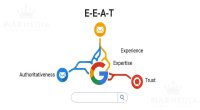Blockchain and Digital Marketing: Next-Gen Strategies for Your Brand
Discover how blockchain technology is set to radically transform digital marketing, SEO, and advertising. Prepare for the future with Piar Medya’s comprehensive guide. You will find answers to all your questions related to topic Blockchain and Digital Marketing: Next-Gen Strategies for Your Brand in the continuation of the text.

Blockchain Technology: A Comprehensive Guide Shaping the Future of Digital Marketing
What Is Blockchain Technology? Understanding the Basics
The Power of Decentralization: Distributed Ledger Technology (DLT)
Immutable Records: The Pillar of Transparency and Trust
How Blocks Work: Cryptographic Security
Beyond Cryptocurrencies: Blockchain's Transformative Power Across Industries
The Blockchain Revolution in Digital Marketing and Advertising
Data Privacy and User Control: A Step Beyond GDPR
Transparent Advertising: Say Goodbye to Click Fraud
SEO and Blockchain: Building Trust and Content Authority
NFTs and Brand Loyalty: A New Form of Customer Engagement
Automated Marketing Agreements via Smart Contracts
Web3 and Metaverse: The New Realm of Marketing
Prepare for the Future with a Professional Blockchain Strategy
Blockchain Technology: A Comprehensive Guide Shaping the Future of Digital Marketing
The digital world is in a constant state of transformation. At the center of this transformation lies a technology as revolutionary as the internet itself: Blockchain. Although often associated with Bitcoin and cryptocurrencies, the potential of Blockchain technology goes far beyond finance, poised to disrupt digital marketing, advertising, and SEO paradigms at their core. At Piar Medya, we understand the importance of anticipating the future and preparing your brand for tomorrow’s standards.
This comprehensive guide goes beyond explaining what Blockchain is — it reveals how this technology will transform your digital marketing strategies, enhance data security, and lay a foundation of transparency in your customer relationships.
What Is Blockchain Technology? Understanding the Basics
In the simplest terms, Blockchain is a digital ledger that records data in an encrypted and immutable way, without the need for a central authority. To better understand this concept, let’s break it down into its core components:
The Power of Decentralization: Distributed Ledger Technology (DLT)
In traditional systems, data is stored on a central server (like a bank’s database). This centralized model is vulnerable to cyber-attacks, manipulation, and censorship. Blockchain uses Distributed Ledger Technology (DLT). The database is copied and distributed across thousands of nodes in a network. For data to be added, a majority of the network must reach consensus. This structure makes the system incredibly secure and nearly impossible to shut down from a single point of failure.
Immutable Records: The Pillar of Transparency and Trust
Each data block added to the Blockchain contains a cryptographic hash of the previous block. This creates a chain-like reaction. Attempting to change an older block invalidates the hash values of all subsequent blocks. Since the network maintains thousands of copies, any tampering attempt is instantly rejected. This “immutability” is the fundamental feature that gives Blockchain its name, and automatically ensures transparency and trust.
How Blocks Work: Cryptographic Security
- Transactions: Every data exchange on the network (sending money, contract approvals, etc.) is recorded as a transaction.
- Block Creation: These transactions are grouped into a “block.”
- Verification and Addition: Participants called “miners” solve complex mathematical problems to verify the block. Once verified, the block is added to the chain and replicated across all network copies. Thanks to cryptographic hash functions, the process offers top-level security.
Beyond Cryptocurrencies: Blockchain's Transformative Power Across Industries
Blockchain is not just an infrastructure for digital currencies. Thanks to its ability to provide trust, transparency, and disintermediation, it is reshaping multiple industries:
- Supply Chain: Every step of a product’s journey from farm to shelf can be tracked transparently, preventing counterfeiting.
- Healthcare: Patient data can be securely stored and shared only with authorized parties.
- Voting Systems: Elections can be made significantly more secure and transparent.
- Intellectual Property: Artists and content creators can have their rights immutably registered on-chain.
So what does all this mean for our world — digital marketing and advertising? This is where it gets exciting.
The Blockchain Revolution in Digital Marketing and Advertising
The current digital marketing ecosystem faces serious challenges: data privacy concerns, ad fraud, and reliance on intermediary platforms. Blockchain has the potential to offer foundational solutions to these issues.
Data Privacy and User Control: A Step Beyond GDPR
Users have lost control of their data to tech giants. Blockchain gives users back the “key” to their personal data. They can decide which brands access what data, and for how long. For marketers, this means higher-quality, permission-based data. This approach goes beyond legal compliance and becomes a cornerstone of corporate identity design and brand trust, as delivered by Piar Medya.
Transparent Advertising: Say Goodbye to Click Fraud
One of advertisers' biggest nightmares is wasting budget on fake bot clicks. In a Blockchain-based advertising network, every click and impression becomes a transparent and verifiable record. Advertisers can see with 100% certainty whether their money reached a real user. This level of transparency dramatically increases the efficiency and ROI of services like Google Ads campaign management.
SEO and Blockchain: Building Trust and Content Authority
Search engines reward trustworthy and authoritative content. Blockchain can timestamp when a piece of content was created, by whom, and whether it was modified. It makes the concept of “original content” provable. As your content authority rises, so will your search engine rankings. In the future, a website’s credibility may be linked to its reputation on the blockchain. This paradigm shift will steer SEO consulting services away from purely technical optimizations toward building verifiable trust.
NFTs and Brand Loyalty: A New Form of Customer Engagement
NFTs (Non-Fungible Tokens) are not just digital art pieces. For brands, NFTs can function as digital loyalty cards — offering access to exclusive events, limited-edition products, or special discounts. For instance, a coffee chain might gift an NFT after 100 purchases, giving lifetime 10% off to the holder. It creates a unique and transferable bond between the brand and the customer.
Automated Marketing Agreements via Smart Contracts
Popularized by Ethereum, smart contracts are pieces of code that execute automatically when specific conditions are met. Think of an influencer agreement: once the influencer posts the content, there's no need to invoice and wait for payment. The smart contract verifies the post (via API or similar) and releases the payment instantly. It removes middlemen, accelerates the process, and builds trust.
Web3 and Metaverse: The New Realm of Marketing
Blockchain is the backbone of the next-gen internet known as Web3. Web3 envisions a decentralized, user-first, and transparent online ecosystem. For brands to remain relevant, understanding blockchain mechanics is essential. Metaverse platforms also rely heavily on blockchain for asset ownership (digital land, avatars, clothing). At Piar Medya, we help position your brand strategically in this new digital universe with expert digital marketing consulting, enabling you to take the future into your own hands.
Prepare for the Future with a Professional Blockchain Strategy
Blockchain technology offers vast opportunities but also complexity. Integrating it into your business model and marketing strategies requires technical knowledge, strategic foresight, and creativity. Jumping in blindly “because everyone’s doing it” could lead to wasted resources.
To ensure your brand benefits from this revolutionary technology, minimize potential risks, and get ahead of the competition, you need a professional roadmap. Piar Medya’s experienced team analyzes blockchain’s marketing potential and develops tailored, actionable, and results-driven strategies for your brand.






